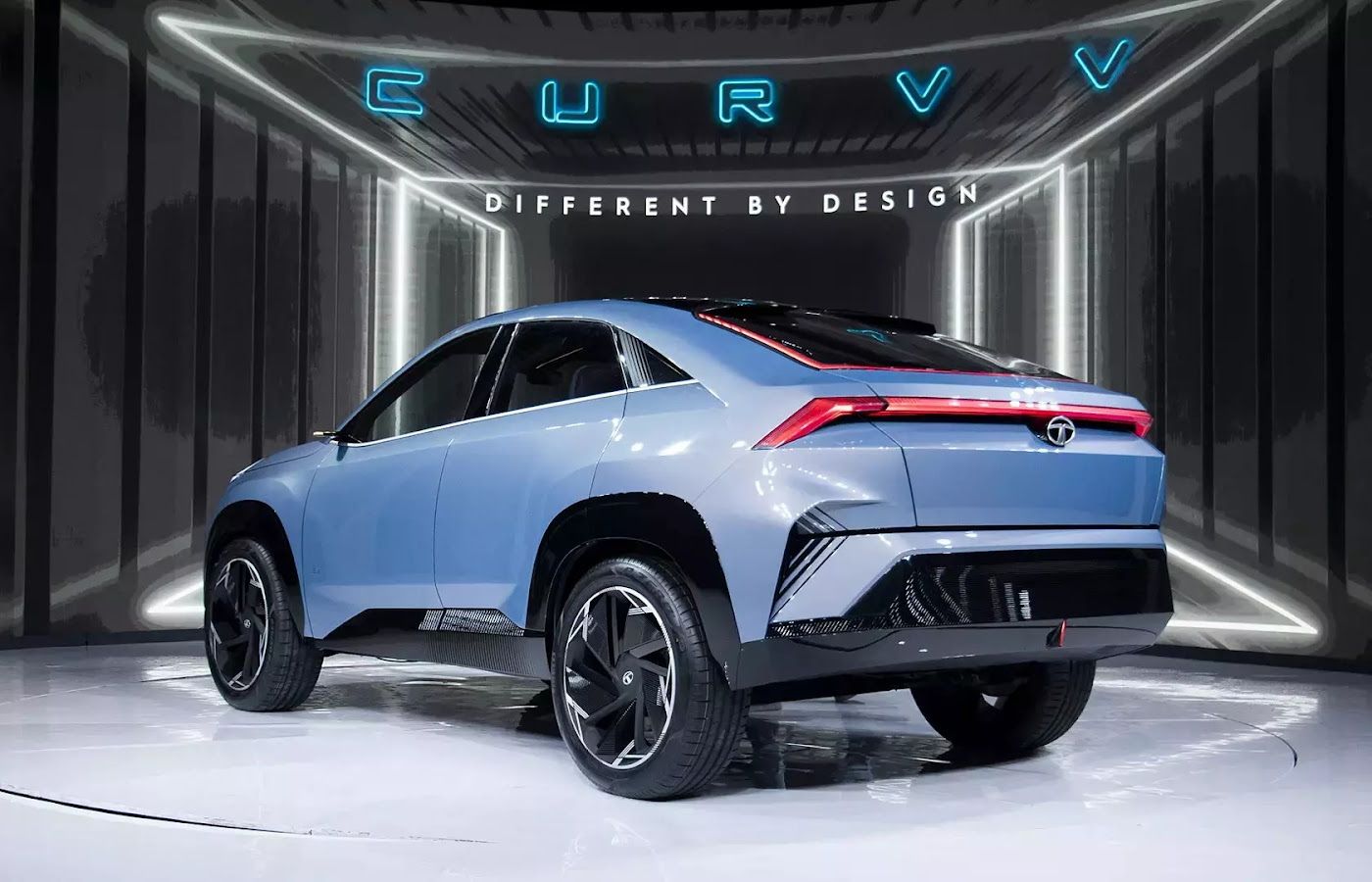Tata Motors just made a bold statement in the electric vehicle market. The company announced a lifetime battery warranty for its Curvv EV and Nexon EV 45 kWh models, extending the coverage that first debuted with the Harrier EV. This move addresses one of the biggest concerns holding back EV adoption: long-term battery reliability and replacement costs.

The announcement comes at a crucial time when electric vehicle sales are gaining momentum but consumer hesitation about battery longevity remains a significant barrier. By offering unprecedented warranty coverage, Tata is not just protecting its customers—it’s reshaping how the entire industry approaches EV ownership confidence.
Understanding the Lifetime Battery Warranty
The “lifetime” warranty covers the high-voltage battery pack for 15 years from the date of first registration, as defined by the Motor Vehicles Act, 1988. This coverage applies to unlimited kilometers and extends to both new customers and existing first-time owners of the Curvv EV and Nexon EV 45 kWh variants.
This warranty represents a significant upgrade from the typical 8-year battery warranties common in the industry. For context, most manufacturers offer battery coverage for 8 years or 160,000 kilometers, whichever comes first. Tata’s extended coverage nearly doubles this timeframe while removing mileage restrictions entirely.
The warranty applies specifically to private individual customers registered as first owners. Commercial users and subsequent owners are not covered under this extended warranty program.
Which Models Are Covered?
The lifetime battery warranty covers specific variants within Tata’s EV lineup:
Nexon EV 45 kWh variants are priced between ₹13.99 lakh and ₹17.19 lakh (ex-showroom). These models offer a range of approximately 465 kilometers on a single charge and come with a 129 PS electric motor.
Curvv EV models include both 45 kWh and 55 kWh battery options, priced from ₹17.49 lakh to ₹21.99 lakh (ex-showroom). The 45 kWh variant offers around 502 kilometers of range, while the 55 kWh version extends this to 585 kilometers.
Harrier EV, where this warranty program originated, remains covered under the same terms. Priced between ₹21.49 lakh and ₹30.23 lakh (ex-showroom), it features a 55 kWh battery pack with a range of approximately 563 kilometers.
Notably, the standard Nexon EV variants with smaller battery packs are not included in this warranty extension, maintaining their conventional warranty terms.
Additional Customer Benefits
Beyond the battery warranty, Tata Motors introduced a ₹50,000 loyalty bonus for existing Tata EV customers purchasing either the Curvv EV or Nexon EV 45 kWh variants. This program rewards brand loyalty while encouraging customers to upgrade within the Tata EV ecosystem.
The loyalty bonus applies to customers who already own any Tata electric vehicle, including the Tigor EV, Tiago EV, Punch EV, or older Nexon EV models. This creates a clear upgrade path for early EV adopters who may want newer technology, longer range, or additional features.
Impact on Total Cost of Ownership
The lifetime battery warranty fundamentally changes the economics of EV ownership. Battery replacement typically represents the largest potential expense for EV owners, often costing between ₹3-6 lakh depending on the vehicle and battery capacity.
Tata Motors estimates that EV owners can save ₹8-9 lakh in running and maintenance costs over a 10-year period compared to similar internal combustion engine vehicles. The extended warranty amplifies these savings by eliminating the risk of major battery replacement expenses during the coverage period.
This warranty also significantly improves resale value prospects. Pre-owned EV buyers have historically been cautious about battery degradation and replacement costs. With transferable warranty coverage, these vehicles become more attractive in the secondary market.
Market Response and Competitive Pressure
The lifetime battery warranty positions Tata Motors ahead of competitors in terms of customer confidence. While other manufacturers offer competitive features, range, and pricing, none currently match this level of warranty coverage in the Indian market.
This move puts pressure on competitors to enhance their warranty offerings or find alternative ways to address customer concerns about long-term EV ownership. Companies like Mahindra, MG Motor, and Hyundai may need to reconsider their warranty strategies to remain competitive.
The timing is particularly strategic as several new EV models are entering the market. By establishing this warranty standard, Tata creates a benchmark that competitors must either match or overcome through other value propositions.
Technical Considerations
Battery technology has advanced significantly, with modern lithium-ion batteries demonstrating improved longevity and degradation resistance. However, offering a 15-year warranty requires confidence in both battery technology and manufacturing quality.
Tata’s warranty likely reflects improvements in battery chemistry, thermal management systems, and overall vehicle integration. The company’s partnership with established battery suppliers and its own manufacturing capabilities contribute to this confidence.
The warranty covers the high-voltage battery pack specifically, which includes the battery cells, battery management system, and associated cooling systems. This comprehensive coverage addresses the most expensive components of the EV powertrain.
Looking Forward: Industry Implications
Tata’s lifetime battery warranty could accelerate EV adoption by removing a major psychological barrier. Many potential buyers hesitate due to uncertainty about long-term battery costs, despite statistical evidence showing battery reliability.
This warranty model may become the new standard in the industry, particularly for manufacturers confident in their battery technology and quality control. It shifts the risk from consumers to manufacturers, requiring companies to invest more heavily in battery development and quality assurance.
The move also signals Tata’s commitment to the EV market and its confidence in electric mobility as the future of transportation. By taking on this additional warranty burden, the company demonstrates faith in its technology and manufacturing processes.
Taking the Next Step
The lifetime battery warranty represents more than just an extended service commitment—it’s a statement of confidence in electric mobility’s future. For consumers considering an EV purchase, this warranty removes a significant concern and makes the total cost of ownership more predictable.
Current EV owners benefit from improved resale values and reduced anxiety about long-term ownership costs. The loyalty bonus provides additional incentive for upgrading to newer models with improved range and features.
As the EV market continues evolving, warranty coverage will likely become an increasingly important differentiator. Tata’s bold move sets a new standard that prioritizes customer confidence and long-term satisfaction over short-term cost savings.
FAQs: Frequently Asked Questions
Q. What models are covered under Tata’s lifetime battery warranty?
A. The lifetime battery warranty applies to Tata’s Curvv EV and Nexon EV models with the 45 kWh battery variant, providing peace of mind for long-term ownership.
Q. Does the lifetime battery warranty cover all battery issues?
A. The warranty is expected to cover manufacturing defects and performance degradation beyond a certain threshold. For specific details, owners should refer to Tata’s warranty policy documentation.
Q. Is the ₹50,000 loyalty bonus available to all customers?
A. The ₹50,000 loyalty bonus is designed for existing Tata EV owners upgrading to the newly launched models. Additional eligibility criteria may apply, so it is best to confirm with Tata Motors’ sales team.
Q. How does the lifetime battery warranty impact resale value?
A. With a lifetime battery warranty, the resale value of Tata’s EVs could see a significant boost as potential buyers are assured of long-term battery performance and reliability.
Q. Are regular maintenance and usage conditions required for the warranty to remain valid?
A. Yes, like most warranties, adhering to recommended maintenance schedules and proper usage guidelines is essential to ensure the warranty remains active.
For More Information Click Here



